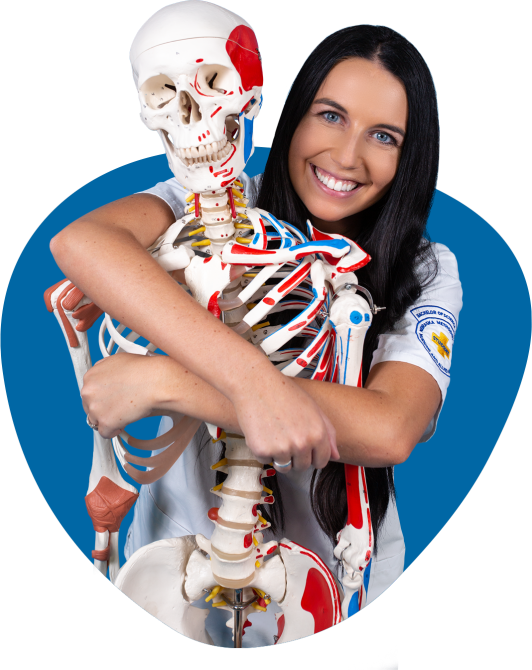Estimated by the Bureau of Labor Statistics (BLS)1
Healthcare is an ever-growing field with a wide variety of career paths. Everyone’s familiar with doctors and nurses, of course, but do you know about the many other options?
Many lesser-known yet equally exciting healthcare jobs have great pay, are in high demand and provide an opportunity to work with and care for patients. Could one of these be the right fit for you?


Estimated by the Bureau of Labor Statistics (BLS)1
“Health Professions” and “Allied Health” are terms to classify a cluster of health professionals encompassing more than 200 different careers. Allied health professionals represent more than 60% of all healthcare providers.
These types of professionals include physical therapist assistants, diagnostic medical sonographers, medical assistants, respiratory therapists, phlebotomists and many more.
Some allied health professionals practice independently but many work as part of a healthcare team in a clinical setting, providing evaluation, assessment and rehab care for patients.

Similar to a diagnostic medical sonographer but with an area of focus centered around the cardiovascular system. Although cardiovascular sonography might seem a bit more specialized, this career path isn’t any less rewarding to those who pursue it.
Cardiovascular sonographers are responsible for mapping the heart, valves and blood vessels that quite literally make us tick. In identifying potential heart problems, a sonographer is able to make an immediate impact on an individual’s quality of life.
The following growth projections and median salary information come courtesy of the Bureau of Labor Statistics.
Learn more by visiting the Occupational Outlook Handbook.
As a sonographer, it’s your job to find the answers to medical conundrums throughout the human body. You’ll enjoy a great salary and myriad opportunities for advancement in this fast-growing field.
Although the most well-known role of a sonographer is to track the development of an unborn child in a mother’s womb, sonography is also used to diagnose all manner of conditions in other parts of the body, making you somewhat of a medical detective.
The wide degree of application combined with constant usage of problem-solving skills make this an appealing career path for many.
The following growth projections and median salary information come courtesy of the Bureau of Labor Statistics.
Learn more by visiting the Occupational Outlook Handbook.
As indicated by the job title, physical therapist assistants (PTAs) provide services under the direction and supervision of a physical therapist. PTAs help people of all ages overcome medical problems that limit their ability to perform functional activities in their daily lives.
Therapy is accomplished through the use of cutting-edge equipment and the latest, most proven rehabilitation techniques. Many people choose this career path because it allows them a unique vantage point from which to view a patient’s long-term progress toward an improved quality of life.
The following growth projections and median salary information come courtesy of the Bureau of Labor Statistics.
Learn more by visiting the Occupational Outlook Handbook.
In simplest terms, you’ll be taking X-rays of the human body. But the job is so much more than that. A radiologic technologist stands at the intersection of technology and patient care, of science and collaboration.
You’ll be an integral part of the diagnostic team, using state-of-the-art radiology equipment to produce images of the body that will be crucial to identifying medical conditions and possible solutions. You may work in a hospital, clinic or other diagnostic imaging center with patients of all ages and conditions. Medical imaging professionals like rad techs can even take certification courses that allow for specialization in mammography, Computed Tomography (CT), Magnetic Resonance Imaging (MRI) and more.
The following growth projections and median salary information come courtesy of the Bureau of Labor Statistics.
Learn more by visiting the Occupational Outlook Handbook.
While the other careers covered in this guide have a clinical aspect to them, a career in healthcare management does not require hands-on patient care. That makes this the preferred choice for individuals drawn to healthcare but who feel like they could make a bigger impact from an administrative perspective.
Healthcare managers play a vital role within the inner workings of healthcare. Persons in this field must learn to effectively lead teams of people from a wide range of disciplines. They need a deep understanding of budgeting, human resources and interdepartmental collaboration, bringing a multitude of skills and personnel together to benefit the organizational structure.
The following growth projections and median salary information come courtesy of the Bureau of Labor Statistics.
Learn more by visiting the Occupational Outlook Handbook.
Sonography is an advanced technology that uses sound waves to generate images used for assessment and diagnosis of various medical conditions.
Multispecialty sonographers are responsible for creating images of the female and male reproductive systems, abdominal cavity, breasts and thyroid.
The following growth projections and median salary information come courtesy of the Bureau of Labor Statistics.
Learn more by visiting the Occupational Outlook Handbook.
As a result of the aging baby boomer population and the Affordable Care Act providing occupational therapy coverage for more people than ever before, occupational therapists (OTs) are experiencing somewhat of a boom. OTs work in hospitals and clinics and regularly make home visits in order to provide clients with services that will help them sustain a higher quality of life.
Clients of OTs may include those with physical or mental disabilities, persons coping with injuries and others seeking to maintain ambulatory functions as they advance in age.
Successful occupational therapists focus on long-term growth, helping their clients to see the differences both big and small that they can make in order to lead a fulfilling, productive life.
The following growth projections and median salary information come courtesy of the Bureau of Labor Statistics.
Learn more by visiting the Occupational Outlook Handbook.
Pharmacy technicians act as important resources for pharmacists. They fill prescriptions, measure proper medication dosages and participate in the many other day-to-day duties required to ensure a thriving pharmacy. Pharm techs regularly interact with patients, providing directions from the pharmacist and acting as the initial point of contact when an individual has a question about a drug.
While being a pharmacy technician is a rewarding career all its own, many people choose to further pursue work as a pharmacist, using their experience as a logical bridge to a doctoral program.
The following growth projections and median salary information come courtesy of the Bureau of Labor Statistics.
Learn more by visiting the Occupational Outlook Handbook.
It’s important that samples from patients be analyzed in an accurate, expedient fashion that allows for the prompt administration of a proper care plan. That’s where a phlebotomist comes in.
You’ll be responsible for the collection, transportation, handling and processing of various medical specimens. Given its typically accelerated pace, a program in this field is often preferred by those persons looking to get an immediate jump on their careers in healthcare.
The following growth projections and median salary information come courtesy of the Bureau of Labor Statistics.
Learn more by visiting the Occupational Outlook Handbook.
Breathe in, breathe out. For most people, it’s an overlooked aspect of our daily lives, but for respiratory care specialists, it’s a science.
Respiratory therapists work with individuals who have problems with their cardiopulmonary system, which essentially means they help people breathe more easily.
This field encompasses more circumstances than you might imagine. A specialist could wind up helping persons who suffer from asthma, sleep apnea or numerous other types of breathing maladies, enabling positive change in the lives of patients and their families.
The following growth projections and median salary information come courtesy of the Bureau of Labor Statistics.
Learn more by visiting the Occupational Outlook Handbook.
In order for an operation to be successful, the surgical team relies on a number of instruments during a procedure. It’s the job of the sterile processing technician to make sure the right tools are safely prepared.
As a sterile processing technician, you’re not involved in surgical operations directly. Instead, you’re in a laboratory behind the scenes, working with a like-minded team to prep instruments based on proper specifications. That means carefully following the sterilization process and gathering sets of equipment between operations to ensure appropriate cataloging.
This is a great entry-point for those interested in a career as a surgical technologist or even a surgeon.
The following growth projections and median salary information come courtesy of the Bureau of Labor Statistics.
Learn more by visiting the Occupational Outlook Handbook.
Most of the roles described have patient interaction, but this takes things to a whole different level. Although this career path is not for those who get queasy at the sight of blood, persons capable of handling the challenges of this profession find that it’s one of the most rewarding pursuits they’ve ever embarked upon.
The surgical technologist is responsible for providing care and technical assistance before, during and after surgical procedures.
In the operating room, the surgical technologist must have an understanding of the procedure being performed and readily anticipate the needs of the surgeon, acting as a veritable right-hand man or woman throughout the operation.
The following growth projections and median salary information come courtesy of the Bureau of Labor Statistics.
Learn more by visiting the Occupational Outlook Handbook.
Nebraska Methodist College offers a variety of academic programs in the fastest-growing, most in-demand fields in healthcare. Additionally, the College is affiliated with one of the largest healthcare systems in the state. Faculty and staff understand firsthand the realities of the healthcare system and the needs of the healthcare industry today.
For more than 125 years, Nebraska Methodist College has been training and educating allied health professionals. The College is accredited by the Higher Learning Commission of the North Central Association of Colleges and Schools.
Nebraska Methodist College is affiliated with Methodist Health System — one of the largest healthcare systems in the state. For more than 125 years, Nebraska Methodist College has been training and educating nursing professionals. The college is accredited by the Higher Learning Commission of the North Central Association of Colleges and Schools (HLC/NCA). The baccalaureate degree program in nursing/master’s degree program in nursing/Doctor of Nursing Practice program at Nebraska Methodist College is accredited by the Commission on Collegiate Nursing Education, 655 K Street NW, Suite 750, Washington, DC 20001, 202-887-6791
The programs, requirements, and policies–including, but not limited to, statements on admission, tuition, fees, and course offerings–contained above are subject to change at the discretion of the College without notice, obligation, or liability. Any changes may also be applied to currently matriculated students. Updates, notifications, and changes are available at the College website, methodistcollege.edu. Nebraska Methodist College prohibits discrimination based on race, ethnicity, sex, color, religion, national origin, physical or mental disability, age, marital status, sexual orientation, pregnancy, gender identity, status as a U.S. Veteran, or other protected class, that adversely affects their employment or education as well as discrimination on the basis of sex in any education program or activity receiving federal financial assistance. The following has been designated to handle inquiries regarding NMC’s non-discrimination policies: Chief Student and Institutional Success Officer at (402) 354-7259. For more information, please see NMC’s Equal Opportunity/Non-Discrimination and Title IX—Sexual Misconduct policies at https://www.methodistcollege.edu.